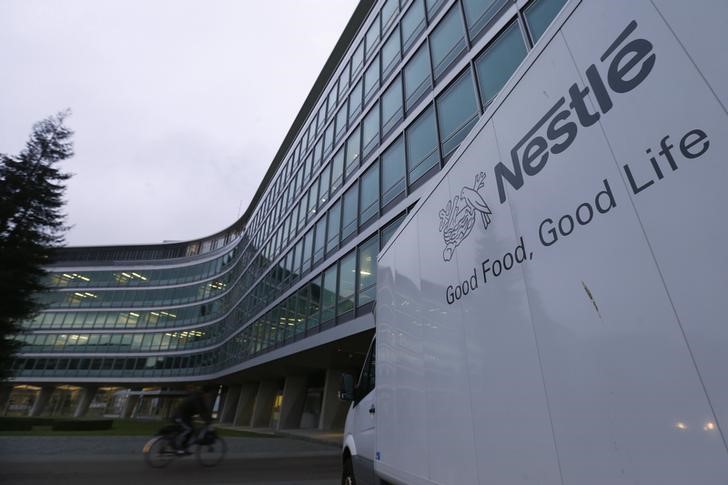Investing.com’s stocks of the week
By Anjali Athavaley
NEW YORK (Reuters) - Nestle SA (VX:NESN) thinks it can turn around its U.S. frozen foods business despite recent sales declines driven by consumer perceptions that the products are not healthy, the company's U.S. chief executive said in an interview.
Nestle remains committed to investing in its frozen food brands, which include Stouffer's and Lean Cuisine, Paul Grimwood told Reuters on Friday.
"We've seen a number of people disinvest in quality in frozen because they're trying to get their prices lower," said Grimwood, speaking at the Consumer Goods Forum Global Summit in New York. "That's not the way to go."
Still, the world's largest consumer goods company is grappling with how to counter the U.S. belief that frozen food isn't fresh.
"Fundamentally, our product is as fresh as the product you make in your own kitchen and then freeze," he said.
The business is Nestle's second-largest in the U.S., behind pet care. But it estimates that the category has been declining annually at an average rate of 2 percent in recent years.
Additionally, Lean Cuisine is battling a shift away from diet foods, which Grimwood said are declining annually at a 7 percent to 9 percent rate.
The company is trying to change the product to respond to consumers' new definition of what is healthy. In February, Nestle said it will shift Lean Cuisine frozen dinners from a diet brand to one built around "healthy lifestyles."
The company also said earlier in June that it was launching a high-protein line geared toward men called Fit Kitchen under the Stouffer's brand.
Still, Nestle has been trimming its portfolio in recent years, selling brands such as PowerBar and Musashi, and the bulk of its Jenny Craig business. Efforts to slim down its sprawling portfolio have prompted questions of whether the company could divest its U.S. frozen foods business.
In March, at the Consumer Analyst Group of Europe conference, Chief Financial Officer Wan Ling Martello said investors had asked her about Nestle's plan to turn around the U.S. frozen food business. "I said, 'look, we're obviously giving our local team a chance to fix it, but there's a clock on it,'" she said.
Grimwood said on Friday that "the clock is on every one of our businesses to make sure there is consumer demand, that it ticks off the right boxes for us as a health and wellness company."
